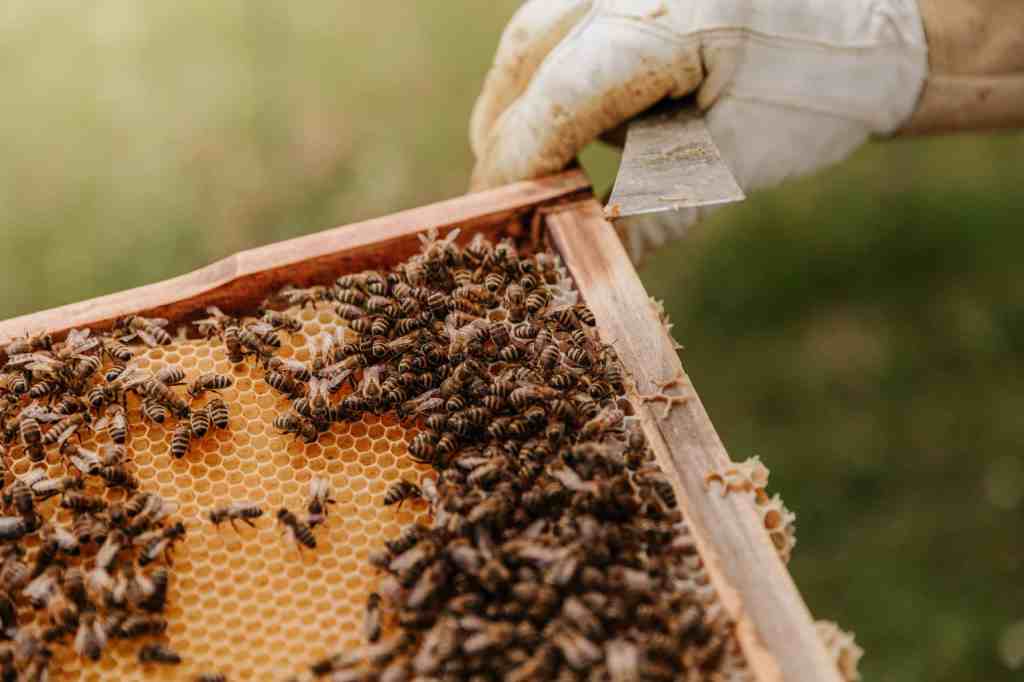Beekeeping: A Sweet and Sustainable Hobby for Rural Living
In recent years, there has been a growing interest in beekeeping as more people embrace the idea of sustainable living and reconnecting with nature. Beekeeping not only provides an opportunity to produce your own honey but also plays a crucial role in supporting the health of our environment. If you’re considering taking up this rewarding hobby, read on to discover the ins and outs of beekeeping.
Getting Started
Before delving into the world of beekeeping, it’s essential to have a good understanding of these incredible creatures. Bees are social insects that live in colonies consisting of three castes: workers, drones, and a queen. Each caste has its specific roles within the hive.
To begin your journey as a beekeeper, you’ll need some basic equipment. Essential items include protective gear (such as a veil, gloves, and a suit), hive boxes or frames for beeswax comb building, tools for hive inspections (like smokers and hive tools), and feeders to supplement their food during lean periods.
Choosing Your Hive
There are several types of hives available for beekeepers today, but the most common one is the Langstroth hive. This type consists of multiple rectangular boxes stacked vertically with removable frames where bees build their wax combs.
Another popular option is the top-bar hive which features horizontal bars on which bees build their comb without any additional support structures. Top-bar hives are often favored by those who prefer more naturalistic approaches to beekeeping.
Location Matters
Selecting an appropriate location for your beehive is critical for both successful honey production and minimizing potential conflicts with neighbors or passersby. Ideally, choose an area that receives morning sunlight while providing shade during hot afternoons.
Keep in mind that bees need access to water sources nearby like ponds or streams; otherwise, they may venture into neighbor’s pools or bird baths seeking hydration. Ensure that your hive is placed on a stable, level surface and away from high traffic areas.
Caring for Your Bees
Once you have set up your hive, it’s time to get acquainted with the care and maintenance required to keep your bees healthy and productive. Regular inspections are necessary to monitor the overall health of the colony, identify potential issues (such as pests or diseases), and ensure an adequate supply of food.
During inspections, beekeepers check for signs of a healthy queen, sufficient brood production, and proper comb construction. They also assess honey stores to determine if supplemental feeding is required during times when nectar flow is low.
Harvesting Honey
One of the most rewarding aspects of beekeeping is undoubtedly harvesting delicious honey straight from your own hives. However, patience is key in this process since new colonies typically require one year before they can produce surplus honey.
Honey extraction involves removing frames filled with capped honey from the hive and using an extractor to spin out the golden liquid. Once extracted, it’s important to strain out any impurities before bottling the honey for long-term storage or immediate use.
Environmental Benefits
Aside from providing us with sweet treats, bees play a vital role in pollinating plants – both wildflowers and crops alike. It’s estimated that approximately one-third of our global food supply depends on pollinators like bees. By becoming a beekeeper, you contribute directly to supporting biodiversity and ensuring our gardens flourish with beautiful flowers while boosting crop yields.
Building Community
Beekeeping also offers unique opportunities for community engagement as many localities have established beekeeping associations or clubs where enthusiasts gather regularly to exchange knowledge and experiences. These groups often provide mentorship programs for newcomers or organize workshops covering various aspects of beekeeping.
Conclusion
Beekeeping presents an exciting opportunity not only to experience firsthand the wonders of nature but also make a positive impact on our environment through sustainable practices. From the initial setup to harvesting your own honey, each step in beekeeping is a learning experience that deepens our connection with these incredible creatures. So, why not embark on this sweet journey and join the growing community of beekeepers?


Leave a comment